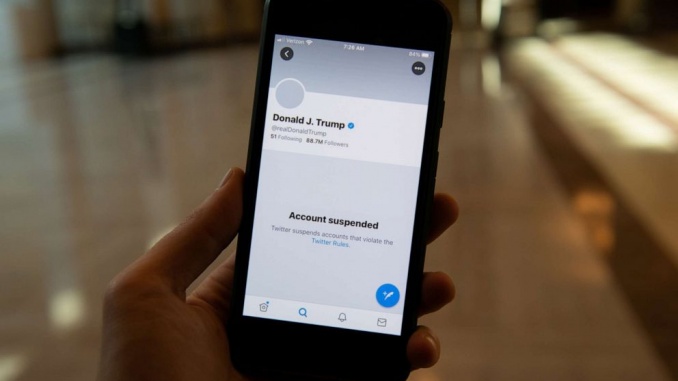
Savannah Gresham | Writer
January 18, 2021
2020 has placed enormous pressure on social networks to monitor their platforms and try to prevent a hotbed of misinformation. In response, Facebook, YouTube, Twitter and other social media giants have hiked censorship into overdrive, leaving many wondering if big media companies dictate what they see and therefore believe. Is fair or “un-American” for companies to have the power to arbitrarily deplatform a voice they don’t agree with?
Last week, President Trump was permanently suspended from using Twitter—and over the weekend he was quickly shut down from attempting to join alternate accounts including the official POTUS account which was labeled as disputed. The President was also banned from Facebook. Amazon shut down web servers to Parler, the new Twitter alternative that was already gathering a large Republican following due to its focus on free speech.
“As I have been saying for a long time, Twitter has gone further and further in banning free speech, and tonight, Twitter employees have coordinated with the Democrats and the Radical Left in removing my account from their platform, to silence me — and YOU, the 75,000,000 great patriots who voted for me,” Trump said.
It seems extreme to ban a current U.S. President while other offensive accounts such as the Iranian supreme leader Ayatolloh Khameini remain active, leaving many to wonder how Big Tech can get away with picking and choosing. The answer seems to lie in the fact that a truly private club can extend membership only to the persons it chooses — a government cannot.
While a government that bans speech it dislikes would be subject to claims of First Amendment violations, a private company does not violate the first amendment by engaging in such conduct. So Jack Dorsey (Twitter CEO), Mark Zuckerberg (Facebook CEO), and the like can sleep comfortably knowing that their purely private platforms are not violating Trump’s First Amendment rights by booting him off.
“I think that Trump being banned from social media doesn’t really violate his First Amendment right because he’s inciting violence, and hate speech doesn’t count as free speech. Speech that directly aims to hurt or threaten someone else shouldn’t be considered free speech, and this is why I think Trump being banned was a good decision,” sophomore Farah Sumpter said.
Where this leaves hundreds of millions of people who turn to these social media platforms to express themselves is another question. “Internet censorship is an incredibly divisive topic right now,” Claire Cole said, a creative partner at Gamblers Pick, which conducted a study finding that a significant number of Americans felt social media had a moral obligation to censor content. “Our study found that more than one in four people believe there should be more censorship on the Internet, while nearly one in three believe there should be less censorship. But despite varying opinions, a majority of people are in agreement that social media platforms should have the right to censor content within their platform(s).”
Concerns were mostly in response to content that stirs violence or perpetuates false information. “The world we live in today is so different and with so many conspiracy theories out there, social media has become a vehicle to spread narratives that can be destructive,” local resident and commercial business owner Michael Perkins said.
“With censorship in media, I guess it can be a good thing and a bad thing, because it can definitely reduce the impact of hate speech, but at the same time, it represses one group and can prevent someone from expressing themselves. I guess it just depends on what is being censored and why,” added Sumpter.
Still, others argue that “The original Internet was based on the premise that, if you don’t like, don’t look,” explained technology industry consultant Lon Safko, author of The Social Media Bible. Safko believes any form of censorship is unacceptable when the primary order of business is to have “open communication between its over 2.7 billion members…including all sides of that conversation.”
Social media, with all its support and criticisms, has become one of the primary sources of modern communication and the debate will most definitely continue as to whether censorship seems to have a bias. The latest events have presented questions about the role of platforms in free speech and how they should be regulated while still upholding the Constitution—questions which need to be explored and answered.

Good article about a complex topic. For me, it’s less about political bias, and more about stopping people who are purposely spreading disinformation. You can still have freedom of speech to spread your disinformation if that’s what you want to do, but that doesn’t mean social media companies (private companies) need to give you their platform to do it. Overall, though, censorship is a tricky issue, and we need to continue discussing it.